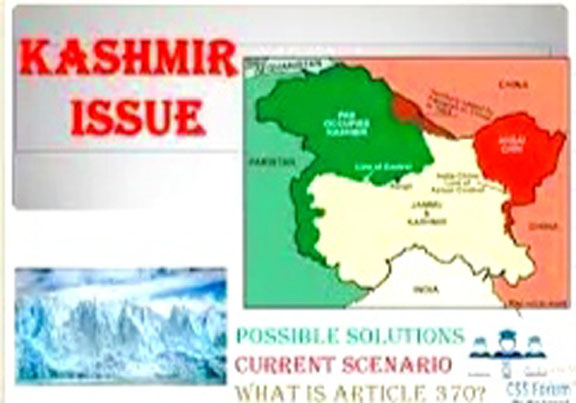Muhammad Raza
In any sane world, Pakistan and India ought to be super-close economic partners. Both countries have a common border of about 1,600 km (excluding the Line of Control). Both have developed nuclear weapons, and both have similar cultures because they originated from the Indian Sub-Continent. However, Pakistan is a Muslim-majority nation whereas India is a Hindu-majority nation. Religious differences between the Muslims and the Hindus led to the creation of two separate countries from the Sub-Continent. Pakistan had to face many problems immediately after its birth. One among these is the Kashmir issue. The Kashmir issue remains a bone of contention between Pakistan and India since their independence and will continue to pose political, civil, and military problems between both countries if it remains unresolved. Pakistan has always tried to end disputes in a civilized, political, and peaceful manner. Similarly, Pakistan wants to resolve the Kashmir issue peacefully. Pakistan does not wish ill will on the Indians. It merely asks for a referendum in Kashmir so that the people will be able to choose the country of their own choice. This was initially the plan to partition Kashmir, had India not interfered. As Kashmir originally had an eighty per cent Muslim population, they definitely would have voted for Kashmir to be annexed with Pakistan.
However, India acted before any formal voting sessions could be held in Kashmir and forcefully occupied it. Despite the ceasefire, both Pakistan and India regularly exchange fire across the contested border in Kashmir, which is known as the Line of Control. This is one of the reasons why the Pakistan-India border is one of the most hostile places on the planet. Needless to say, the root cause of the two countries’ dispute is the Kashmir issue. If it were resolved, Pakistan and India could actually develop friendly relations with each other. India claims that it considers Kashmir to be an integral part of itself. The very implication of this statement is that the people of Kashmir wish to be integrated with India. However, is that really the case? The presence of a large amount of military presence in Kashmir poses a question mark on the very essence of India’s claim. Moreover, India has always prevented the conduction of a plebiscite/referendum in Kashmir. Unfortunately, the United Nations has done very little for Kashmir. Even though the UN agrees that the events happening in Kashmir are a clear violation of the Universal Declaration of Human Rights (UDHR), it hasn’t extended any physical support toward Kashmir.
Despite the injustices against the people of Kashmir, Pakistan still wants to solve the dispute peacefully, because Pakistan acknowledges the fact that war between two nuclear powers will have far-reaching negative effects and will eventually lead to complete annihilation. However, Pakistan will absolutely not stand any further violence in Kashmir.

